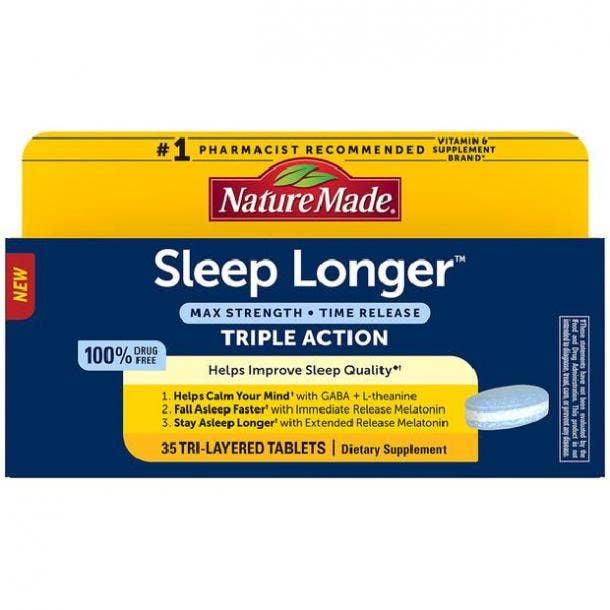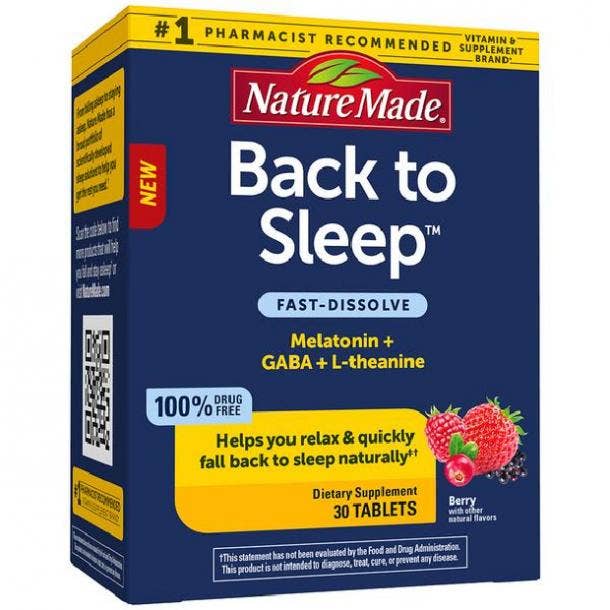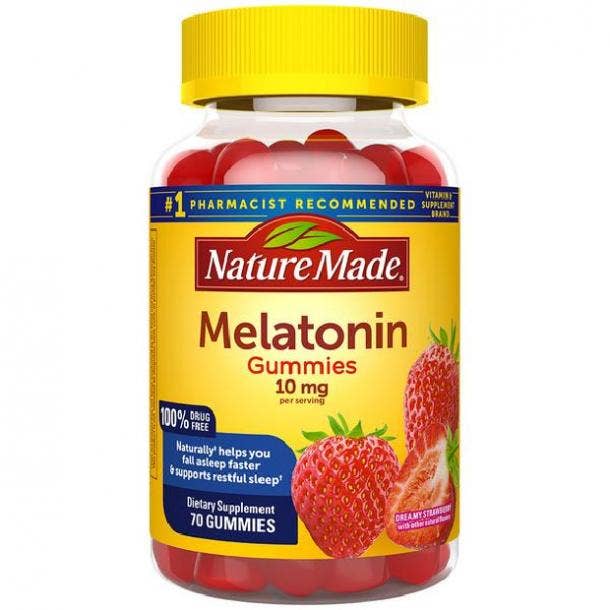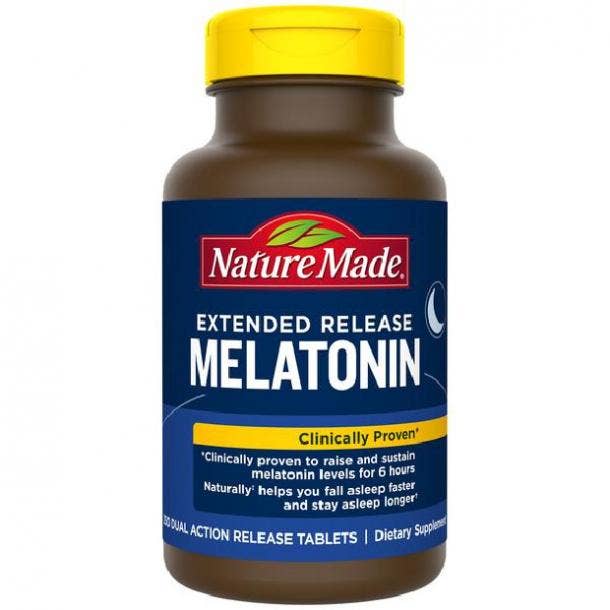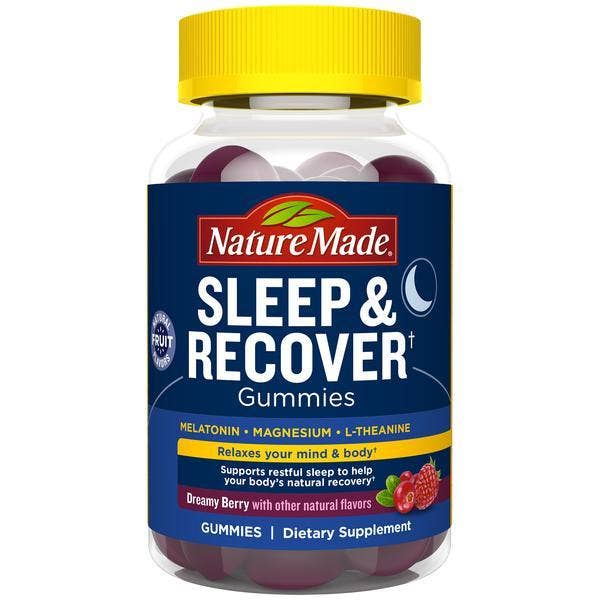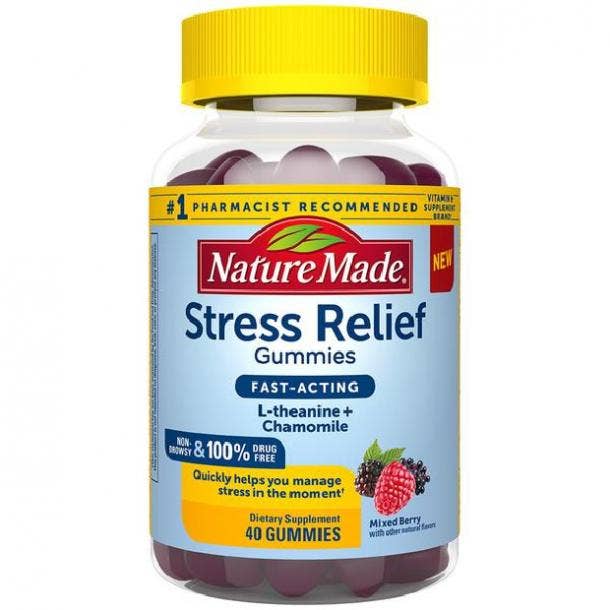In fact, studies have found that over 70 million Americans struggle with chronic sleep issues. This is compounded by the fact that so much of our work, entertainment and social life now revolves around technology. Regardless of what is impacting our ability to sleep, we all suffer for the lack of a good night’s rest. In fact, a recent survey conducted by Nature Made, the #1 pharmacist recommended vitamin and supplement brand, found that sleep and stress are top concerns for Americans. Nature Made found that 50 percent of Americans surveyed consider improving their sleep to be a top mental health goal; 70 percent prefer to get a full night’s sleep every night rather than have sex; and 74 percent prefer to wake up everyday feeling well-rested instead of getting a promotion at work. The United States of Wellness survey also found that many of those with sleep issues experience negative effects in other areas of their lives, with 39 percent saying sleep issues negatively affect their personal lives, and 30 percent reporting interference in their professional lives.
What happens when you don’t get enough sleep?
“In the short- and long-term, not getting enough sleep (or poor quality sleep) can lead to drowsiness, inability to focus, irritability, weight gain, high blood pressure, increased risk of infection, worsened symptoms of mental health conditions like depression or anxiety, difficulty thinking, poor decision-making, and a decline in academic performance, among many other effects,” warns Nature Made’s Wellness Ambassador, Dr. Nicole Avena. Sleep is one of the single most important practices we can prioritize to improve our overall health. Even studies have shown that poor sleep can impact all areas of our health, including the prevalence of cardiovascular disease. “We often take sleepiness, irritability and the inability to focus as the totality of issues related to poor sleep. The real impact is on a much larger scale, and affects our emotional and physical health, including our immune system’s ability to protect us against infection and our ability to cope with stress,” warns Dr. Susan Hazels Mitmesser, Vice President of Science and Technology at Nature Made. Sleep is our recovery — from the day, the week, the month, the year, and for life. “Good sleep quality is a very crucial aspect of your overall health and wellness, and many Americans do not get enough. However, many health organizations recommend 7-9 hours of sleep each night. If you are not getting the recommended amount, your body is not able to fully replenish, restore and recover," adds Valerie Agyeman, Registered/Licensed Dietitian (RD, LD) and Nature Made Wellness Ambassador. “Insufficient sleep can result in poor memory and concentration, impaired balance and coordination, weakened immunity, mood swings, cravings, and low sex drive. Chronic sleep deprivation can even lead to long-term effects like diabetes, cardiovascular disease, and depression.” RELATED: What The Time You Go To Sleep Reveals About Who You Are
Why should you use a sleep aid?
Both the quality and quantity of daily sleep matter, and natural remedies work in a holistic way to improve the entire sleep experience. “A natural sleep aid is a great line of defense if you’re having trouble with sleeping. Instead of going straight to medications that can be potentially addictive or have serious side effects, using natural sleep aids is a gentler option that allows you to explore other alternatives that are naturally occurring in not just nature, but also our bodies in some cases,” Dr. Avena suggests. Sleeping well with (natural) support is far more important than trying to sleep with zero assistance. “While it’s important to get the recommended amount of sleep each night, it can be a challenge for many people. Sleep aids, such as Nature Made’s Good Sleep Gummies, are a safe and effective way to support restful sleep. They contain melatonin to naturally help people fall asleep faster, and L-theanine to help relax the mind,” recommends Agyeman. But always be sure you are buying your sleep aids and supplements from a trusted source. As Dr. Avena says, “The quality and safety of dietary supplements should be top of mind. You’ll want to buy from a reputable company that uses third party testing of their products so you can feel safe experimenting with a natural sleep aid. Nature Made is one of those companies. They have the largest amount of USP verified products, and they offer a variety of natural sleep aids containing melatonin.”
8 Best Natural Sleep Aids and Sleep Remedies
1. Melatonin
Melatonin is the hormone that our body produces in the evening that helps us sleep. “Melatonin is a hormone that our bodies produce to help regulate our sleep-wake cycle,” Dr. Avena says. “Taking a melatonin supplement at night can help you get to sleep.” Supplementing with melatonin in the evening can be very helpful for getting our circadian rhythms back on track. “Circadian rhythm is the interplay between our core body temperature and two hormones that our bodies produce: melatonin and cortisol," says Dr. Mitmesser. “Melatonin secretion peaks at night to promote sleep, while cortisol peaks in the morning to stimulate wakefulness. Taking a melatonin supplement in the evening can add to the amount of melatonin your body naturally produces, which can help you sleep during the night.” Nature Made has the perfect melatonin supplements to help you sleep, all of which include natural ingredients: Nature Made Sleep Longer™ We all want a better night’s sleep, and this natural sleep aid from Nature Made is 100 percent drug-free tri-layer time release tablet that provides just the right amount of melatonin at the right time to help you sleep through the night.†
It also includes a blend of L-theanine and GABA to help maintain calm and relaxation in an effort to fall asleep faster and stay asleep longer.‡ And all it requires is taking one tablet one hour before bedtime with a glass of water. Nature Made Back to Sleep™ This is another supplement that contains melatonin, as well as a blend of L-Theanine and GABA. Back to Sleep™ comes in the form of fast-dissolve tablets, which helps you relax and quickly fall back asleep.
Relax your mind by taking one berry-flavored tablet when waking up in the middle of the night, or one tablet 30 minutes before bedtime, either dissolving them fully or chewing before swallowing.†‡ Nature Made 10mg Melatonin Gummies With 10mg of melatonin per serving, these gummies regulate your body’s sleep and wake cycles with a yummy strawberry flavor. Just chew two gummies one hour before bed to help you fall asleep.†
Nature Made Extended Release 4mg Tablets This specially formulated, dual-action tablet is designed to release melatonin both immediately and gradually throughout the night.†‡ In fact, these tablets are clinically shown to raise melatonin levels in just 15 minutes, with elevated melatonin levels for up to 6 hours.
One tablet just one hour before bed with water means a longer sleep, and more sleep promotes a well-rested mind and body.
2. Magnesium
Magnesium is not often considered by many as a sleep aid, but it actually can help in a big way by relaxing the muscles. “Magnesium is essential for health because every cell and organ in the body needs it to function properly,” says Agyeman. “You can find magnesium in food sources such as nuts, seeds, whole grains and beans, but many people do not get enough from their diet, putting them at risk for a magnesium deficiency. When it comes to magnesium, it helps relax the body and supports muscle relaxation.” “Be sure to talk to your healthcare provider before starting a supplement regimen. Magnesium glycinate, bis-glycinate, or citrate are highly absorbable forms of magnesium with less risk for gastrointestinal distress.” Luckily, Nature Made has just what you need for a good night’s rest. Nature Made Sleep & Recover Gummies The secret to a good night’s sleep is the ability to just relax and fall asleep, and this combination of melatonin, L-theanine, and magnesium helps do just that. Magnesium is a great way to help relax muscles, L-theanine helps relax the mind, and melatonin helps with falling asleep.†
RELATED: If You Only Need 5 Hours Of Sleep, It Might Be In Your Genes (According To New Research)
3. Lavender
Lavender doesn’t just smell nice — it can be a powerful asset in relaxing and getting to sleep. “Research shows us that smell can affect our sleep, so using essential oils as part of your nightly routine can help you get a restful sleep,” Dr. Avena suggests. That’s especially true with lavender. “Lavender contains chemical compounds such as linalool and linalyl acetate, which are thought to be responsible for its ability to calm the nervous system and thus help you sleep. There have been quite a few studies that show using lavender aromatherapy as a sleep aid can improve sleep quality and restfulness upon waking.” Essential oils, in general, help create clarity and ease before bed, making them a great alternative to help you sleep. “If you’ve ever smelled some essential oils like lavender, eucalyptus, or chamomile, you can see why they may help with sleep — they smell so good and help you relax almost instantly!” adds Dr. Avena.
4. Meditation
Meditation is a natural way to clear your mind before sleep, and calm your body so it’s ready to rest. Really, the benefits of meditation are endless; in addition to helping you relax before bed, studies show that meditation improves the ability to maintain attention, reverses brain patterns related to worrying, and helps you focus on tasks for a longer period of time. “Research shows that various types of meditation can help with insomnia and potentially even help those without sleep disorders get a restful sleep,” says Dr. Avena. “When meditation is part of a bedtime routine, it can help to put you in the right mindset to get to bed peacefully. That’s because meditation helps to relax the mind (an ‘aroused’ state of mind is often what keeps us from falling asleep). Throughout the body, meditation can also lower your heart and breathing rate and lower levels of cortisol (a stress hormone).” Nature Made Stress Relief Gummies New from Nature Made, these gummies are a calming supplement that comes in a delightful mixed berry flavor. Not only does it contain L-theanine, which helps to manage stress in the moment, it also contains chamomile.
Just chew two gummies as needed to help manage stress, and the formula works within 30 minutes. It’s also non-drowsy, so you don’t need to worry about falling asleep while at work or running errands.† RELATED: Why So Many People Wake Up For An Hour In The Middle Of The Night… On Purpose
5. Tart cherry juice
In addition to drinking a hot cup of tea, tart cherry juice is another effective remedy for insomnia due to the large amount of melatonin present, as well as a significant amount of the compounds anthocyanin and tryptophan. Multiple studies have found that drinking tart cherry juice can help with insomnia, improves the quality of sleep, lengthens the duration of sleep, and boosts melatonin levels in the body. One study, in particular, had participants drink tart cherry juice twice daily for two weeks; researchers determined that those participants slept, on average, one hour more every night.
6. Dietary changes
Your diet can affect your body in ways you may not even realize, so getting a better night’s sleep might mean cutting back on sugar, alcohol, caffeine, and nicotine. “Stimulants like nicotine and caffeine can create a sense of wakefulness and keep you feeling wired, even when you want to rest. And while alcohol may make it easier to fall asleep, the effect wears off, causing sleep disruption later in the night. Avoiding stimulants later in the day can allow for your body’s natural rhythm to drive periods of sleep,” Dr. Mitmesser comments. In addition to removing stimulants, you might also want to add certain foods to your diet. For instance, blood-sugar instabilities are a very common cause of an inability to sleep or waking up in the middle of the night. “A recent study found that certain nutrient deficiencies are associated with short sleep, which is defined as less than 7 hours a night. Some of those nutrient shortfalls associated with short sleep include magnesium, calcium, and vitamins A, C and D. These nutrients can be found in a number of foods including cheese, green leafy vegetables, nuts, orange vegetables and fruits, and fatty fish like salmon and tuna,” Dr. Mitmesser recommends. Agyeman suggests adding specific items to your grocery list, and following a nutrient-dense eating routine. “Eating fruits, vegetables, whole grains, dairy, nuts, seeds, legumes, and lean protein is a great way to improve your ability to sleep and support the work your body does while you’re sleeping. Even better, many of these foods contain key components that may support sleep such as melatonin, magnesium and tryptophan,” she says. “A few to add to your grocery list are turkey, eggs, and bananas (sources of tryptophan); almonds, oats, and dark chocolate (sources of magnesium); and eggs and nuts (sources of melatonin).”
7. Bedtime routine
A bedtime routine is more than just brushing your teeth and washing your face. Sticking to a certain schedule before bed not only optimizes your circadian rhythm, but ensures better sleep. This means finishing eating at least two hours before bed, aiming to sleep at the same time every night, reading a book, unplugging from technology, and using earplugs or an eye mask as needed. “Similarly to meditation, having a bedtime routine can help you gradually reduce the brain’s arousal state and encourage relaxation,” advises Dr. Avena. “Supplements, meditation, and tea can all be a part of the bedtime routine. The idea is to help your body understand that it is now time for bed, so as you go through your routine, your body can start to relax because it knows it’s ‘done for the day.’”
8. Small lifestyle changes
Changing even the simplest parts of life are essential in getting a better night’s rest. This means avoiding stress, exercising more often, and regulating your body’s temperature as well as that of the bedroom you sleep in. Avoid stress and anxiety Stress and anxiety often keep people awake at night and unable to sleep. An environment that encourages sleep is helpful, so think about stress-management techniques to relax at night. Another way to avoid stress is to dim the lights and keep your home nice and quiet. Exercise frequently Aim for exercise or movement every day, especially if you are sitting for long periods of time. This could be something as simple as a 20-minute walk, or as rigorous as a 30- or 40-minute cardio workout. Exercise creates more adenosine, an inhibitory neurotransmitter, in the brain, which promotes better sleep and even helps you fall asleep much quicker. One study published in the journal Sleep Medicine found that participants who completed moderate workouts four times per week, for six weeks, “reported getting an extra 75 minutes of sleep per night — more than any drug has helped deliver.” Regulate the temperature Lowering your bedroom temperature can help regulate your internal clock. Because the best temperature is a bit cool, using a comforter or heavy sheets will keep you warm and content. Another way to regulate the temperature is by taking a warm bath or shower before bedtime, effectively lowering your core body temperature and inducing sleep. Feeling warm and stepping into a cool bedroom makes you drowsy, and able to drift off to sleep.
When to See a Doctor
Prolonged sleep disorders and issues are bad for health and function in many ways. If sleep issues continue long-term or worsen, be sure to see your doctor. A medical professional can recommend treatment methods specific to your needs. Your health is important! †These statements have not been evaluated by the Food and Drug Administration. This product is not intended to diagnose, treat, cure, or prevent any disease. ‡Supplements melatonin, a hormone found naturally in the body -Created in partnership with Nature Made RELATED: Let Her Sleep In! Why Women Need More Sleep Than Men Aly Walansky is a lifestyle journalist with nearly two decades of experience covering health and wellness topics. Her work appears in dozens of digital and print publications regularly. Follow her on Instagram or Twitter for more.
